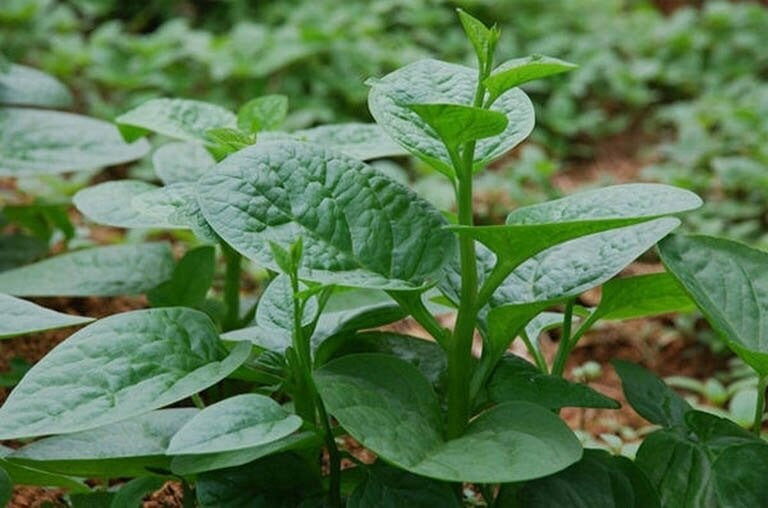Malabar spinach is not only used for food, but also has medicinal properties, but some groups of people need to be careful when using this vegetable.

According to specialist doctor II Huynh Tan Vu, lecturer of Traditional Medicine Department, University of Medicine and Pharmacy, Ho Chi Minh City (campus 2), Malabar spinach is rich in nutrients but contains high levels of oxalic acid and purine, so eating too much causes calcium oxalate in urine to accumulate in the body, easily causing kidney stones.
High uric acid levels increase the risk of gout. Therefore, people with kidney stones and gout should limit their intake of Malabar spinach.
Malabar spinach is used as a cooling food, to clear heat, and to prevent constipation, so people with diarrhea or loose stools should not eat it.
Malabar spinach has a lot of mucus, the leaves grow alternately. The US Department of Agriculture (USDA) believes that Malabar spinach provides many important nutrients for the body such as sodium, lipids, potassium, fiber, carbohydrates, protein, calcium, iron. Many vitamins in Malabar spinach leaves such as vitamins A, B6, B12, C, D.
The beta-sitosterol component in this vegetable has anti-cancer effects and prevents oxidation. Therefore, eating Malabar spinach regularly helps prevent cancer, especially digestive tract cancer. One day, you only need to eat 1 small bowl of cooked Malabar spinach to provide enough vitamin A and iron for the body's needs.
In Oriental medicine, Malabar spinach is cold, sour, non-toxic, affects the heart, spleen, liver, large intestine, and duodenum meridians, helps with urination, heat dissipation, detoxification, beautifies the skin, and treats prickly heat and acne.
Vietnamese people use Malabar spinach to cook soup, rarely use it as medicine. However, in Indonesia, India, Bangladesh, people use Malabar spinach to treat constipation, anemia, inflammation, and intestinal diseases. Ripe Malabar spinach is used as food coloring.
You can use this vegetable in cases where you need to heal wounds, it is good for bones and joints. The juice from Malabar spinach can help heal burns quickly. Stewing Malabar spinach with pig's feet helps treat bone and joint pain.
People with constipation should take 500g of Malabar spinach and cook it into soup and eat it regularly. In particular, pregnant women who often suffer from constipation can use Malabar spinach instead of harmful laxatives. The ingredients in Malabar spinach promote digestion by adding mucus and soluble fiber, facilitating and reducing constipation.
Malabar spinach also helps with anemia and heatstroke. Therefore, adding a bowl of Malabar spinach soup to your daily menu in the summer will help you feel more delicious and cool down. Malabar spinach leaves also help treat minor burns and beautify.
The above information has helped you answer the question “Who should not eat Malabar spinach?”. Hopefully you will use this vegetable properly to maximize its effectiveness.
HA (according to VTC News)